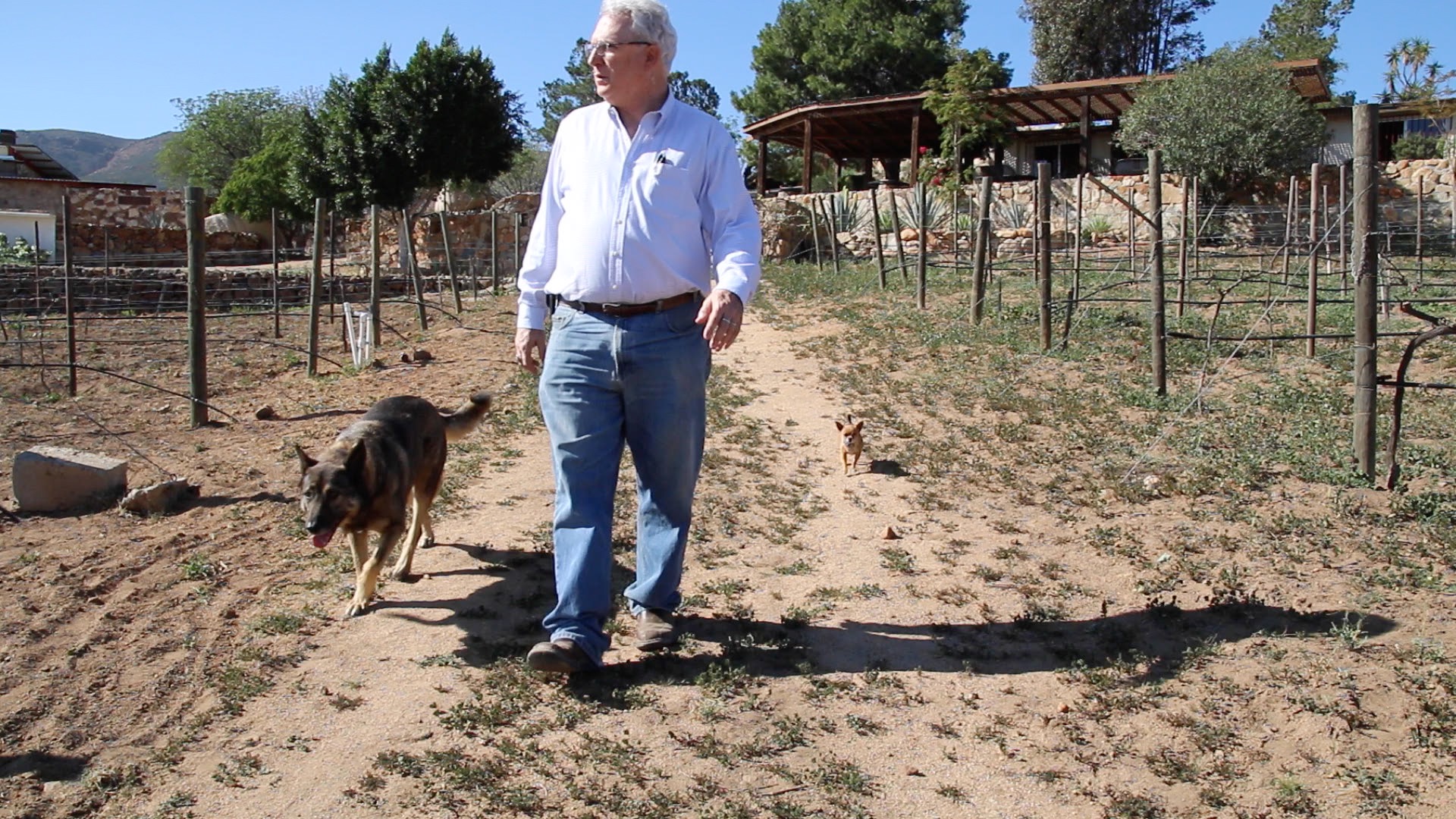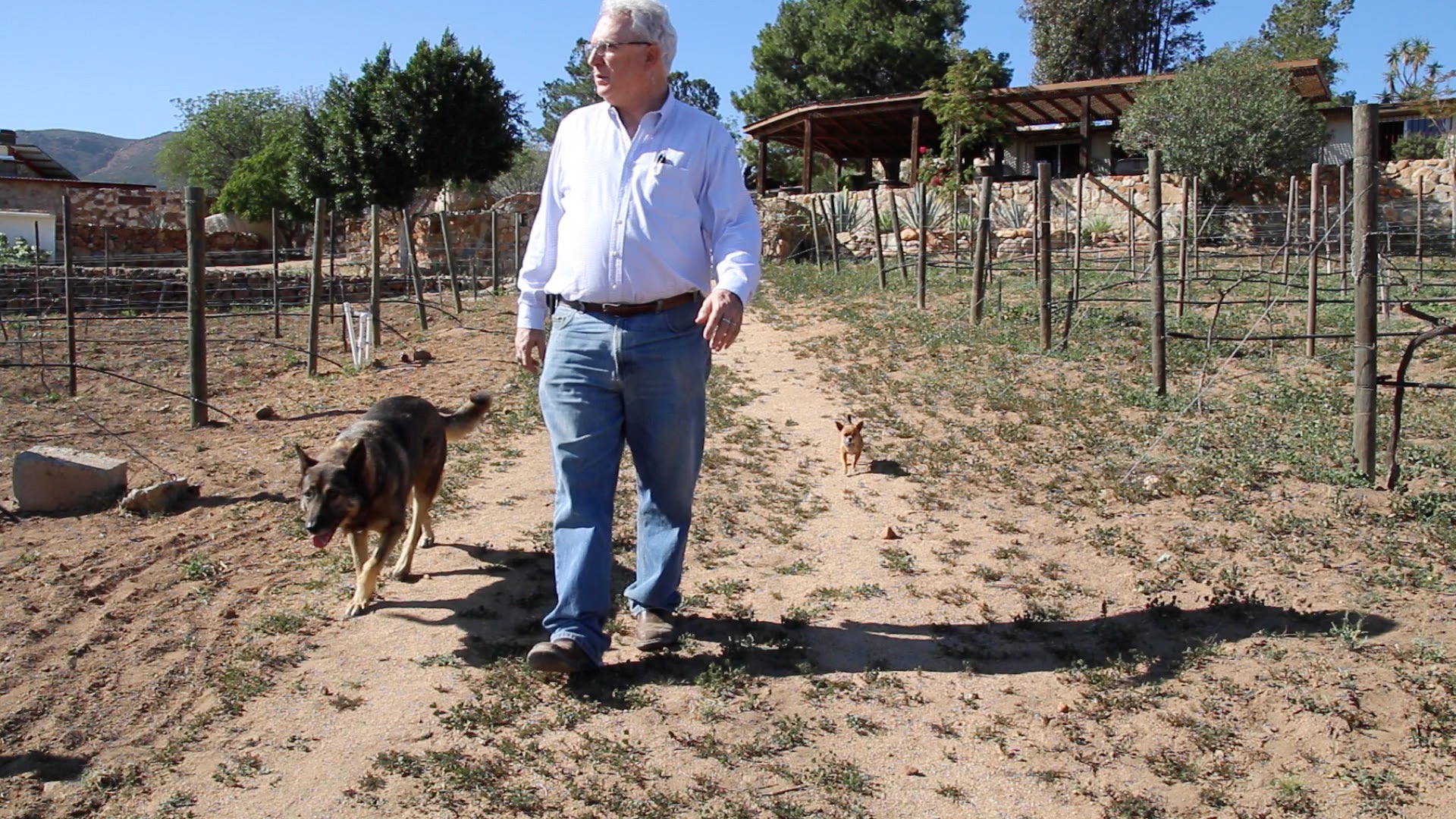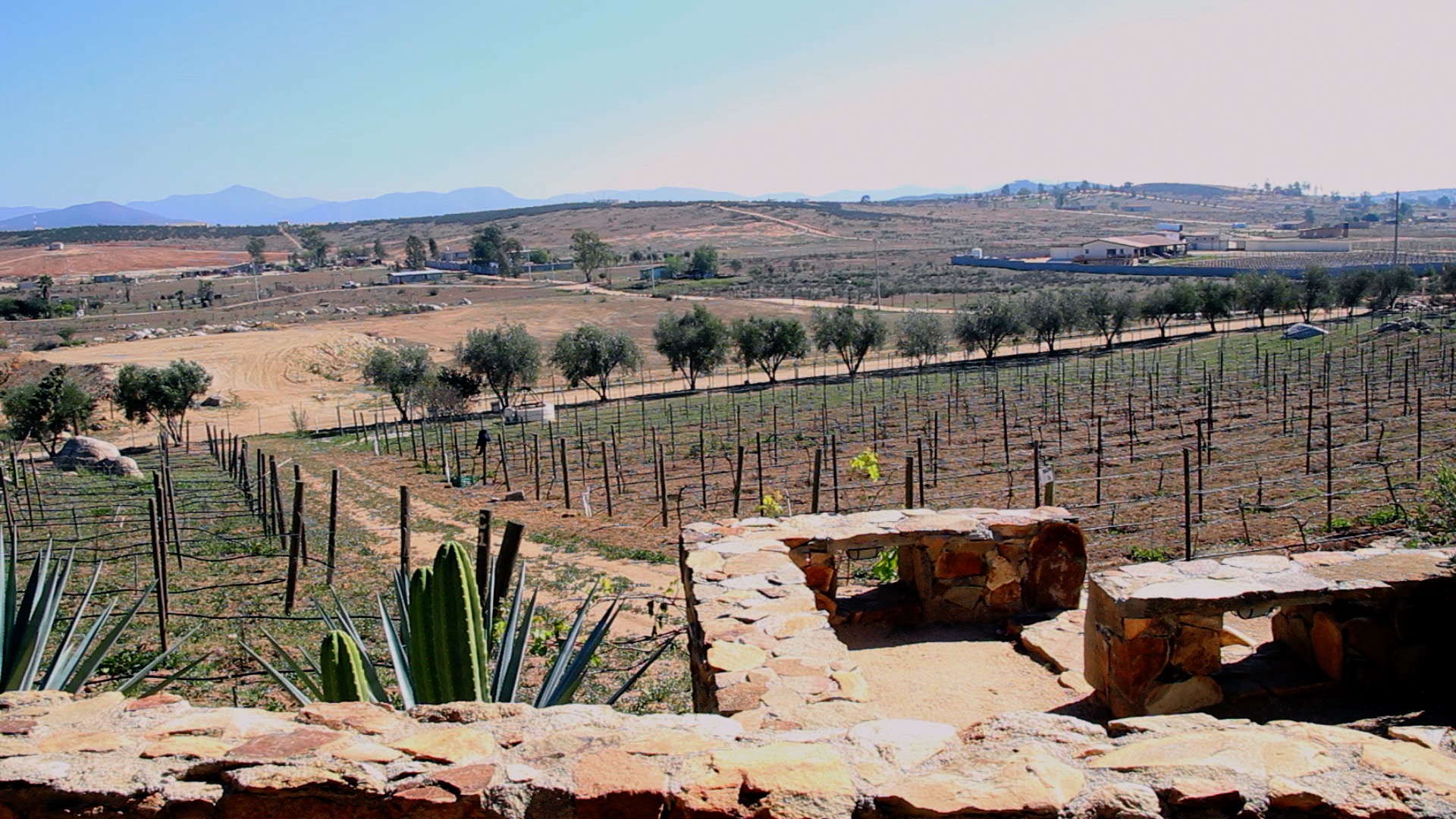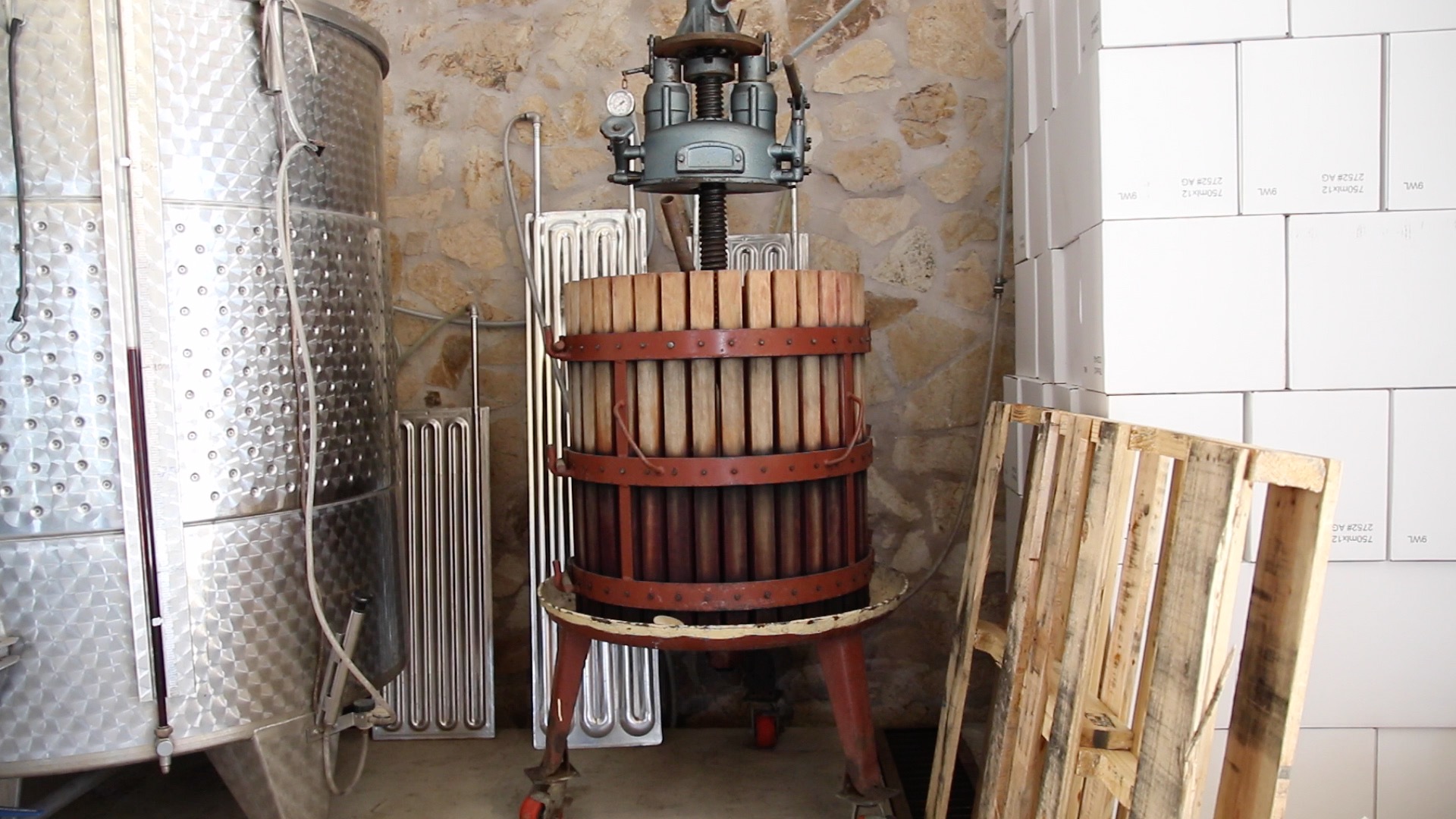
Viñas Pijoan is a family winery started by wine loving veterinarian Pau Pijoan. Pijoan's parents moved from Barcelona to Mexico and wine was an important part of the family table. Viñas Pijoan produces 2,500 cases of wine on five acres of land. We talk to Pijoan about the potential of Baja wines and the problems with salinity.
Christopher Barnes: Tell us about your background and how you got into the wine business, that would be great.
Pau Pijoan: We started the winery about 12 years ago. I'm a veterinarian. I did research in dairies, and I was also consulting dairies. Started making wine as a hobby in '99. And the hobby became a passion, the passion became an obsession, and here we are. I'm retired from veterinary work and all my energies are focused on winemaking.

How would you describe the terroir of Valle de Guadalupe?
The terroir of Valley of Guadalupe is very complex. What's more, in this small property we have only five acres. We can find at least four different types of soil in our five acres. We have limestone, but mostly it's granite, decomposed granite, and a bit of sandy soil. So it is difficult to define and say that it's all the same sort of soil. The weather is what is really outstanding in Mexico. The weather in Baja, in northern Baja, is the only place in Mexico where it doesn't rain in the summer. It only rains in the winter. So the last rains we have are usually in April with maybe a shower in May and very few showers during harvest. That makes it much easier to produce wine than in the rest of of the country where it rains in the summer. We have cool nights because we're very close to the seashore and we have hot days during the summer. This has been a difficult year, it's rained very little. We still hope it will rain. We'll still have two more months of rain. But it usually is the perfect weather to make really wonderful wines.
One of the issues that you hear about with Baja wines is the salinity. There was a piece in the Wall Street Journal not so long ago, and it was a little bit negative on Baja wines and the reason they gave was the salinity. What is your opinion on that?
About the salinity, that's one of the issues that everybody's making about Baja wines. Let's say first of all it might be the trademark of the wine, having a little bit of salt. But it's not a thing that will happen everywhere in the Valley of Guadalupe. Some vineyards are more affected by the salinity than others. Some types of soil are more affected by salinity than others. For example the grapes grown in sandy soil usually don't have this character. Whereas vines grown on hills, especially if the hills have very heavy soils, the grapes will show this character. Then there are other valleys which don't get much attention. For example, La Grulla, which is the southern part, south of Ensenada, it has no problem at all with salinity. The water is fresh. There's no problem with lack of water. It's also near the coast so it's very similar in weather to the Valley of Guadalupe. San Vicente has some regions that are salty because of their heavy soils. The red soils of San Vicente can sometimes be salty. Then again you have some years that show very clear salinity, and some years that they don't. If it rains a lot then you won't have that problem. If it rains very little you will have that problem. But then again it's also the way winemakers make the wine. If you decide that the grape is a bit salty, and you try to extract as much tannins as you can you will always get the salt. So my philosophy is if I think the grapes I'm gonna use are going to be a little bit salty, I won't do very heavy extractions. That way most of my wines are not salty at all. Some of them are, for example the Leonora, which is my premium wine. I make a heavy extraction of Cabernet and a very light extraction of Merlot. It's a little of Cabernet and Merlot. Why do I do that? Because I think a little bit of saltiness can add to the character of the wine, to the character of the Mexican wine.

One of the things that wine critics always talk about is terroir, the uniqueness of a place. And it seems to me that the characteristic of saltiness is something which rather than pointing it out as a defect, in fact you could look at it as something which is somewhat unique and interesting related to this region.
Saltiness can be distinction of the terroir, but you have to keep it in check. It's nice to have those things in a terroir, but if you have a salty wine, it's no good, it's not going be a very pleasant wine. So there are a number of things you can do, as I said before. You can go for a very powerful wine, and then it's going to probably be salty. Especially if you got if from a very heavy hilly vineyard. Or you can go for lighter wines, easier to drink and you will get less salt out of the extraction. So it's a matter of choice for the winemaker, but it definitely is something we have to think about when we are making our own wines. I don't especially enjoy very salty wines. I really don't like them. So that's why I try to make wines very light on the salt or with none at all.
Tell us about what grapes you think perform really well in this region.
Well grapes can perform really well in the region. I don't make Nebbiolo, but it has been one of the classic grapes that they always talk about. Petit Sirah, which was introduced as a varietal to add color and alcohol to the wines, on its own can make really wonderful wines. I make one of my super premium wines using a blend of Petit Sirah and a bit of Cabernet. Grenache is also doing very well, mostly in the less watery areas. So if you don't have that much water you definitely need some very heavy grapes like Grenache. Fortunately for our industry there's no single grape to use, because it's very complex. Everyone thinks you have to make Malbec like the Argentinians or Syrah like the Australians. But as I said before, it's the soil diversity here, the conditions we have, and the Mexican winemaker choices that make it so different. It's very difficult to make light wines with, let's say, Nebbiolo. And the market now wants lighter wines, so that's why we have Merlot, that's why we have Zinfandel, you can make a really nice light wine with them. If the market calls again for very heavy wines, we have all the wines we need.
And the Valle de Guadalupe, it's expanded a tremendous amount over the last few years. Maybe talk a little bit about how the valley has expanded since you've been here and where you see for the future.
The future of the Valley of Guadalupe is a complex thing. There's a really heavy pressure in building all sorts of condos and housing. Everybody wants to come here and have a piece of the action. And there is very little water. The price of land has really escalated to ridiculous prices. I don't think a vineyard will survive with these land prices. I think the future at some point will see a level of equilibrium. I think most of the grapes are going to be produced south of Ensenada rather than here. The vineyards that are here will stay but they are not going to make many more vineyards because there's no water. As I said there are some valleys which are not that in fashion, but they can produce wines and grapes. And they are very close, about a one hour journey at the most.

And what are your influences as a winemaker? Do you have a philosophy of winemaking?
I come from a Catholic family. Although my parents were married in Mexico, they both came as refugees from the Spanish Civil War. And they married in Mexico but they came from Barcelona. So I was raised in a family that always drank wine. It's very common in those families that the children will drink wine diluted with water. That's how I started and how my daughters have been raised. For me wine is not a beverage that you drink only for a celebration or a wedding. It's something that you drink everyday. If you're going to drink everyday, most of the wines I enjoy are not that complex and not that heavy. I do produce and enjoy heavy wines, but I will drink them on a winter day with a roast. You aren't going to drink them with pizza, but I do eat pizza. I enjoy it with a light wine. So I make wines that are easy to drink. They won't ever win a competition cause they're friendly. Wines that win competitions usually are really heavy wines. But it's doing very well for me. I mean most people like and enjoy this philosophy I have about making wines that are easy to drink and nice.
How much wine are you making at the moment Pau?
I'm making around 2500 cases, which is the equilibrium I got in sales and production. I was doing a little bit more before, and then I realized it was taking me too long to sell. And it was taking all the joy out of the production. So I've gone down a little bit in what I'm selling easily, which is about over 2000 cases.
I think you'll hear about Mexican wine more and more over the next years because there are some really interesting projects. I was reading a number of books about how Napa started. I'm not saying that we're the Napa of the '60s because it's a totally different thing. But lots of people that started winemaking in Napa have more or less the same background that I have. And they were all crazy people that were just doing it because they love wine. Now we have a second generation of wineries which are going through the motions as a business, but let's see how it goes.
Read our feature story on the Valle de Guadalupe and watch our video interviews with:
Drew Deckman of Deckman's en El Mogor
Israel Zenteno of Monte Xanic
Tru Miller and Daniel Lonnberg of Adobe Guadalupe
Alvaro Alvarez-Parilla of AlXimia
Paolo Paoloni of Villa Montefiori














